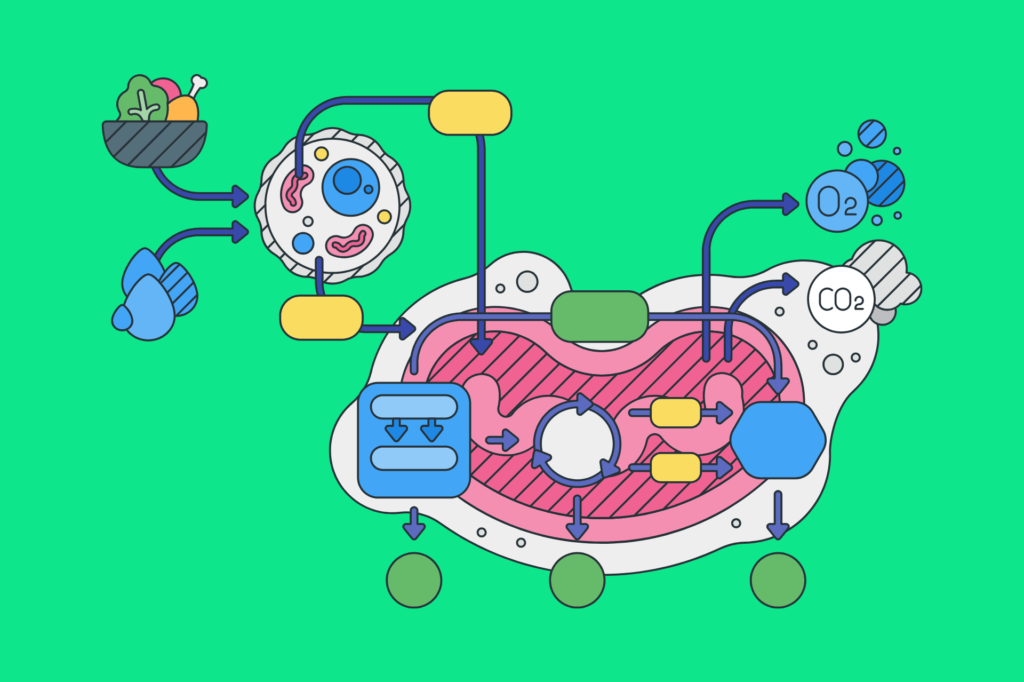As we age, our metabolism tends to slow down, especially after the age of 40. This natural decline can lead to weight gain, fatigue, and various health challenges. But the good news is that it’s possible to boost metabolism naturally after 40 with strategic lifestyle changes. This article explores evidence-based ways to rev up your metabolic rate, helping you maintain a healthy weight and energy level as you grow older.
Why Does Metabolism Slow Down After 40?
The slowing of metabolism after 40 is a biological reality for many. Several factors contribute to this decline:
- Loss of muscle mass: Muscle burns more calories than fat, even at rest. Age-related muscle loss (sarcopenia) can reduce metabolic rate.
- Hormonal changes: Especially in women during perimenopause and menopause, estrogen levels drop, affecting how the body stores fat and uses energy.
- Reduced physical activity: Many people naturally become less active as they age, which impacts calorie expenditure.
- Changes in mitochondrial function: Mitochondria, the powerhouses of your cells, may become less efficient over time.
“Metabolism isn’t just about burning calories—it’s about the whole body’s ability to convert nutrients into energy effectively.” — Dr. Laura Berman, Health Expert
Top Ways to Boost Metabolism Naturally After 40
Improving metabolism over 40 requires a comprehensive approach. Here’s how you can naturally give your metabolism the boost it needs:
1. Prioritize Strength Training
Building muscle is one of the most effective ways to increase metabolic rate. Aim for at least 2–3 sessions per week targeting all major muscle groups. Resistance exercises such as weightlifting, bodyweight workouts, and resistance bands are excellent choices.
2. Eat Enough Protein
Protein requires more energy to digest compared to carbs or fats. This is known as the thermic effect of food. Additionally, protein helps preserve muscle mass during weight loss or aging.
Include a high-quality protein source in every meal:
- Lean meats like chicken and turkey
- Fish and seafood
- Eggs
- Legumes and beans
- Greek yogurt and cottage cheese
3. Stay Hydrated
Even mild dehydration can slow your metabolism. Drinking enough water helps with digestion, energy production, and fat metabolism. Aim for 8-10 glasses of water daily, and more if you’re physically active.
4. Get Quality Sleep
Lack of sleep disrupts hormones like leptin and ghrelin that regulate appetite and metabolism. Chronic sleep deprivation can lead to insulin resistance and weight gain. Aim for 7-9 hours of uninterrupted sleep each night.
5. Reduce Stress
Stress increases cortisol levels, which can lead to fat storage and muscle breakdown. Managing stress through activities like yoga, meditation, or even a daily walk can help keep your metabolism balanced.
6. Eat Whole Foods and Avoid Processed Ones
Whole foods take more effort to digest and help keep your metabolism active. Processed foods, on the other hand, are quickly absorbed, leading to blood sugar spikes and metabolic inefficiency.
7. Add Green Tea or Coffee to Your Routine
Both green tea and black coffee contain compounds that may enhance fat burning and metabolic rate, at least temporarily. Green tea contains catechins that synergize with caffeine to increase fat oxidation.
Learn more about green tea’s metabolic benefits in this article from Healthline.
Metabolism-Boosting Nutrients Table
Here’s a quick comparison of essential nutrients and foods that support metabolism:
| Nutrient | Role in Metabolism | Food Sources |
|---|---|---|
| Protein | Preserves muscle, increases thermic effect | Eggs, chicken, beans |
| Iron | Helps oxygen transport, supports energy | Spinach, red meat, lentils |
| Magnesium | Supports energy production | Almonds, leafy greens, bananas |
| Vitamin B12 | Boosts energy metabolism | Fish, dairy, fortified cereals |
| Omega-3s | Reduces inflammation, may improve metabolism | Salmon, flaxseeds, walnuts |
Additional Lifestyle Changes to Consider
Along with diet and exercise, the following lifestyle adjustments can help revitalize metabolism after 40:
- Intermittent Fasting: May help regulate insulin sensitivity and support fat loss.
- Regular Movement: Stand up every 30 minutes if you sit for long periods. Small movements add up.
- Limit Alcohol: Excess alcohol can disrupt hormones and impair metabolism.
- Avoid Extreme Diets: Drastically cutting calories can backfire by slowing metabolism further.
Common Myths About Metabolism After 40
It’s easy to fall for myths when trying to boost metabolism. Let’s debunk a few common ones:
- Myth: “I can’t lose weight because my metabolism is broken.”
Truth: Your metabolism slows, but it’s rarely “broken.” Small lifestyle tweaks can make a big impact. - Myth: “Eating late at night ruins your metabolism.”
Truth: It’s more about total calorie intake and quality of food than the time of eating. - Myth: “Supplements alone can fix metabolism.”
Truth: Supplements may help but are not a replacement for good diet and exercise.
Conclusion
While aging may naturally slow your metabolism, it’s not something you have to accept without action. Through mindful eating, strength training, quality sleep, and managing stress, you can significantly improve your metabolic rate even after 40. It’s all about consistency and creating habits that support your body’s natural processes.
Frequently Asked Questions (FAQ)
Q1: Can you really boost your metabolism after 40?
Yes. While metabolism naturally slows, targeted strategies like strength training, protein intake, and lifestyle improvements can significantly enhance it.
Q2: How long does it take to see results from metabolism-boosting habits?
Most people notice changes within 4–8 weeks, especially when combining exercise and proper nutrition. Muscle gain and fat loss may take longer but are worth the patience.
Q3: Are there any specific foods that speed up metabolism?
Foods like lean protein, green tea, spicy peppers (capsaicin), and whole grains can help boost metabolic rate temporarily due to their thermogenic effect.
Q5: Is cardio or strength training better for metabolism?
Both are beneficial, but strength training is more effective long-term because it builds muscle, which increases resting metabolic rate.



